Students can no longer merely rely on their academic understanding of the content covered during their studies. The need for proper application of this knowledge is more apparent in the world of work. Therefore, the Diploma in Event Management and the Diploma in Tourism Management are following a novel approach in assessment structures: simulations.
Simulated assignments are assessments in which students practice concepts in a simulated learning environment before trying them out in the real world. These settings use various situations with varying levels of realism to assess students' application and problem-solving skills based on the scenarios provided. With this method, students are encouraged to apply what they've learned in theory-based classes to industry-specific circumstances.
Simulations are one of the most successful tools for learning complicated skills. Students that participate in these simulations are creative, professional, analytical, problem solvers, and team players. Employees in the fast-paced world of Event- and Tourism Management require these critical skills to thrive. Students navigate through specific event scenarios and adjust to such exercises, learning how to take advantage of changes in the external world.
The advantages of these simulations are that students have more time and preparation to make decisions, which ensures that students remain accountable, motivated, and continue to learn. This helps students to learn from their mistakes before they make them. This is possible with the guidance of specialists that navigate the simulation and provide immediate quality feedback to students as issues arise. Furthermore, this assessment approach allows students to go beyond theoretical understanding while executing technical tasks.
During the simulation's months, students must communicate with industry providers as part of their assignment requirements. By the time students have completed these assessments, they have met with industry professionals who evaluate the students’ input and ideas to determine how suitable they are to real-world situations. This review from the industry professional is intended to establish the viability of the concepts created by students and to offer more information on what factors contribute to success in the tourism industry and event sector. Such encounters help students to hone their professional abilities while also becoming acquainted with how stakeholders communicate with one another in the industry, which is a recipe for student success.
Read what STADIO alum, Dyln de Villiers, has to say about learning through simulations while studying Tourism Management.
“I was appointed as Logistics manager during our golf day simulation project in 2019 and I was extremely grateful for this position. It put me in a position of leadership and management where I exceeded everyone’s expectations.
This position helped me in my work-based learning and development in my 3rd year quite a bit. It allowed me to adapt to my surroundings by fulfilling different and new tasks. It also allowed me to understand how a team of people work together to create a finished project and no one is more important than anyone else. I learned conflict management skills and the correct lines of communication to use.
In all, the Golf Day simulation project was a great experience that allowed for a professional workplace simulation.”
Michelle Pedersen, Event Management final-year at STADIO shared the following about learning with simulations:
“My name is Michelle Pedersen, and I am an international student from Denmark studying Event Management. My biggest challenge when I decided to study overseas was my concerns about the different cultures as well as my insecurities based on my spoken English. As soon as I started studying, I realised how supportive and encouraging the lecturers and my fellow students were and I quickly realised that STADIO is a place for diversity and academics, as well as personal growth.
I was elected as chairperson for our second-year simulation project. The support, the qualified lecturers and how the course is compiled with modules relating to the industry is a great kick-start to a successful career in the event management arena. Already to this day, I have had educated and industry-focused conversations with event managers in Cape Town and Denmark and I can say with confidence that STADIO has provided me with the knowledge that allows me to build relationships in the industry. A lot of this knowledge comes from the simulation project. Therefore, I can guarantee that the importance of a simulation project assessment is huge and it teaches one how to conduct yourself in the industry.
If you might have a small fire in you that tells you that event management is your dream profession, then I can assure you that you would do yourself a great favour by reaching out to STADIO to hear more about the course they offer. It will be one of your greatest choices in life that will not only teach you about the industry but also mature you as a person.”
Using simulations as an assessment framework, STADIO creates scenarios that are comparable to those evident in the industry. If you are interested in studying event- or tourism management that prepares you for the world of work, visit us on our Open Days or send your queries to our esteemed student recruiters who will provide timely support.
DATE: February 2022 | DISCLAIMER: The content of this blog is accurate at the time of publication. STADIO reserves the right to change the content due to changes in legislation, as well as for market requirements and other reasons.

